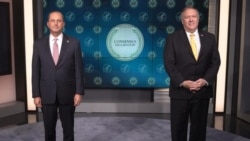The United States signed the Geneva Consensus Declaration on October 22, 2020. As stated in the Declaration’s preamble, the Declaration seeks “to uphold the right to the highest attainable standards of health for women; to promote women’s essential contribution to health, the strength of the family and of a successful and flourishing society; and to express the essential priority of protecting the right to life.” The Declaration has been signed so far by 33 other countries, representing more than 1.6 billion people in every region of the world.
The Declaration reaffirms that “all are equal before the law,” and that “human rights of women are an inalienable, integral, and indivisible part of all human rights and fundamental freedoms.”
The Declaration also recognizes that “universal health coverage is fundamental for achieving the Sustainable Development Goals.”
The Declaration also reaffirms “that there is no international right to abortion, nor any international obligation on the part of States to finance or facilitate abortion, consistent with the long-standing international consensus that each nation has the sovereign right to implement programs and activities consistent with their laws and policies.”
At the signing ceremony for the Declaration, Secretary of State Michael Pompeo noted:
"Under President Trump’s leadership, the United States has defended the dignity of human life everywhere and always. He has done it like no other president in history. We’ve mounted an unprecedented defense of the unborn abroad . . . During our administration, U.S. taxpayer dollars will never go to foreign nongovernmental organizations that perform or actively promote abortion as a method of family planning.”
Secretary for Health and Human Services Alex Azar emphasized that “The Geneva Consensus Declaration is an historic document stating clearly where we as nations stand on women’s health, the family, honoring life, and defending national sovereignty.”
“The declaration is much more than a statement of beliefs,” he said. “It is a critical and useful tool to defend these principles across all United Nations bodies and at every multilateral setting.”






